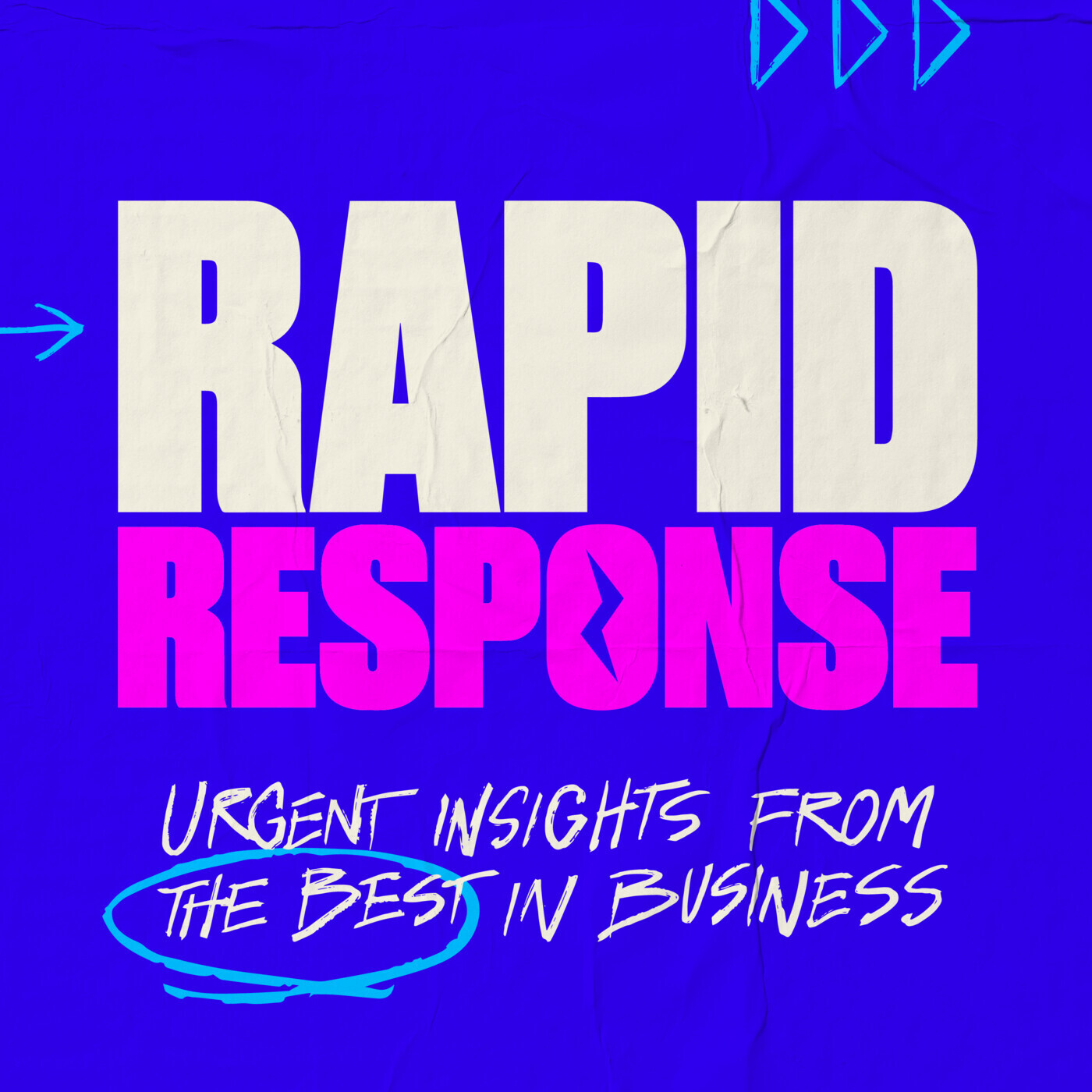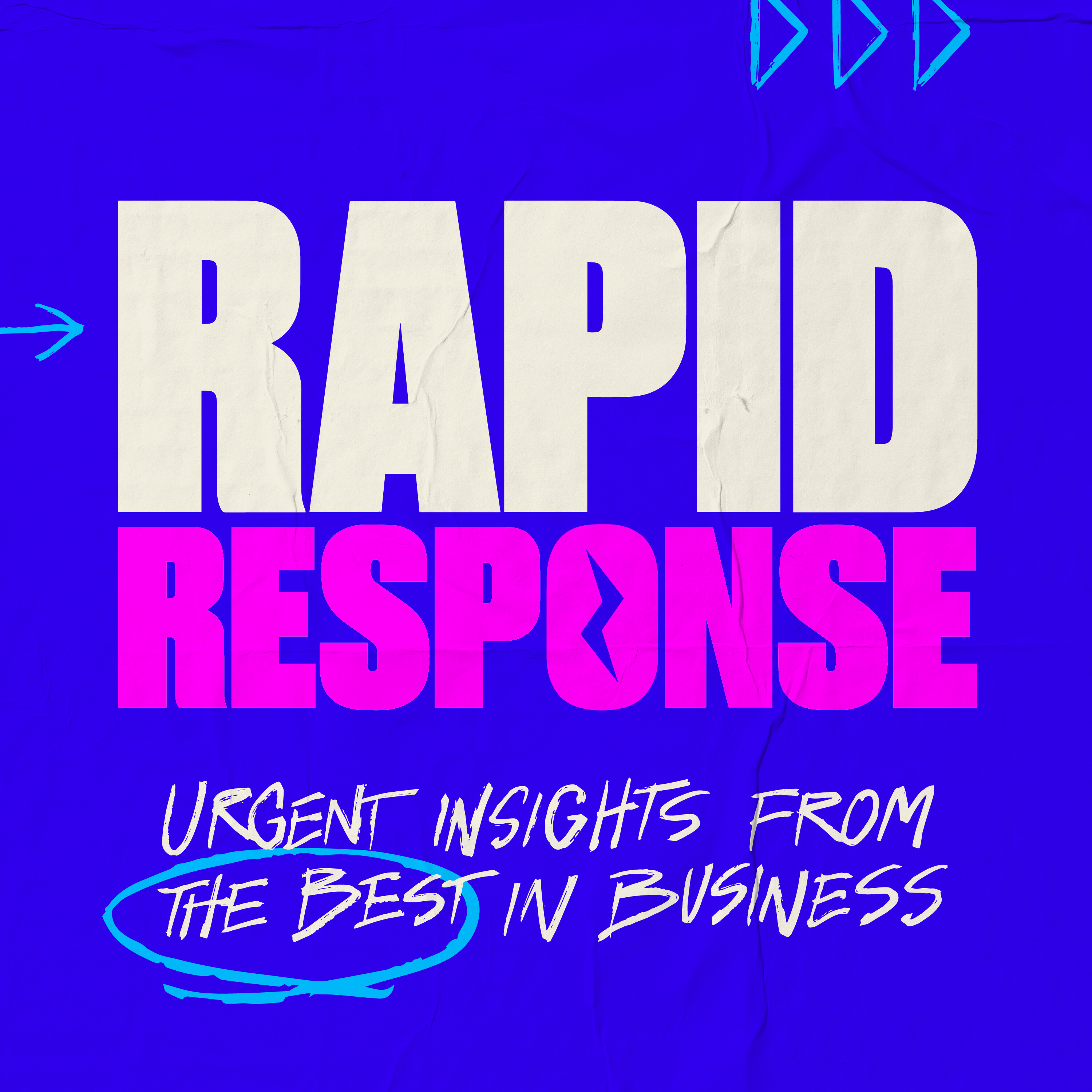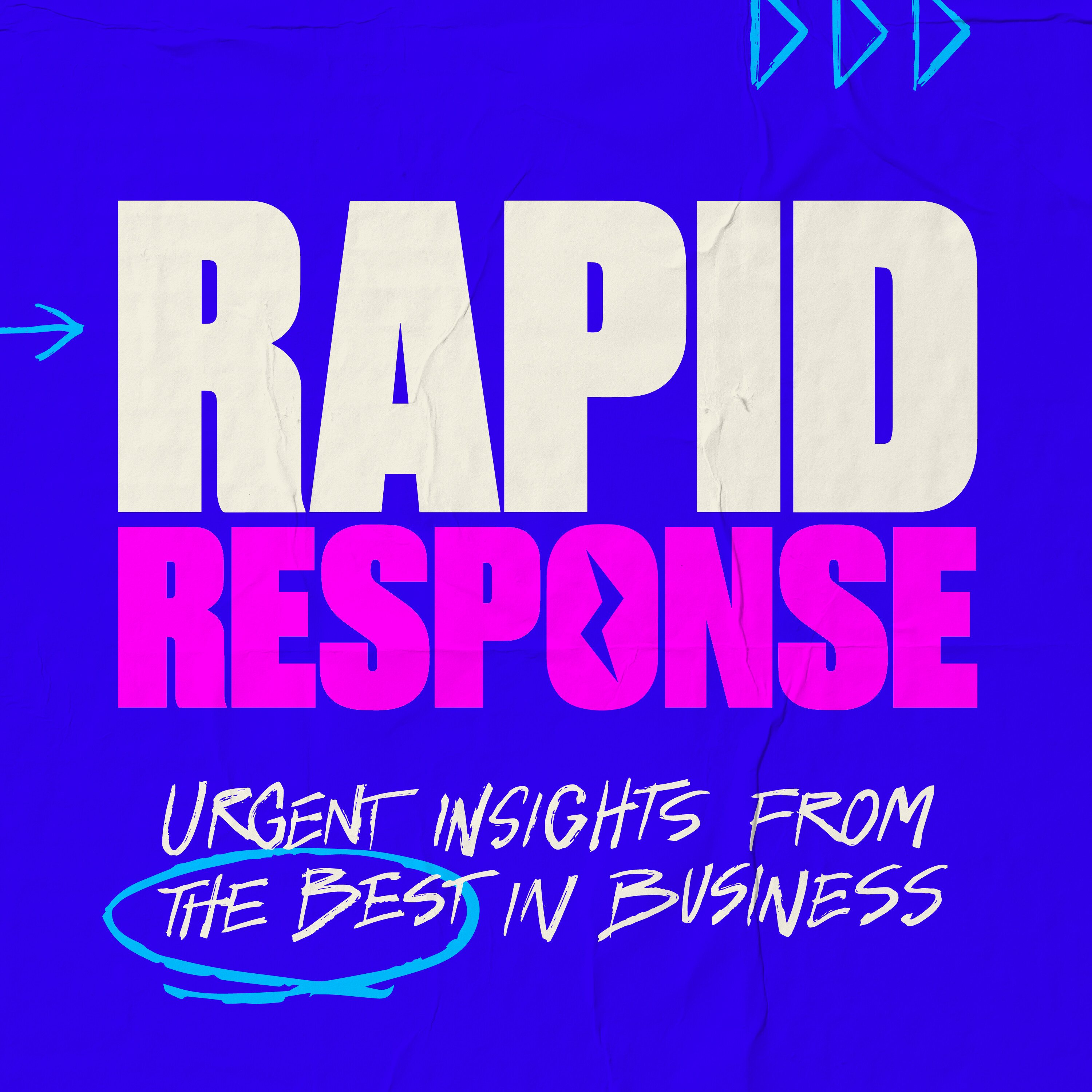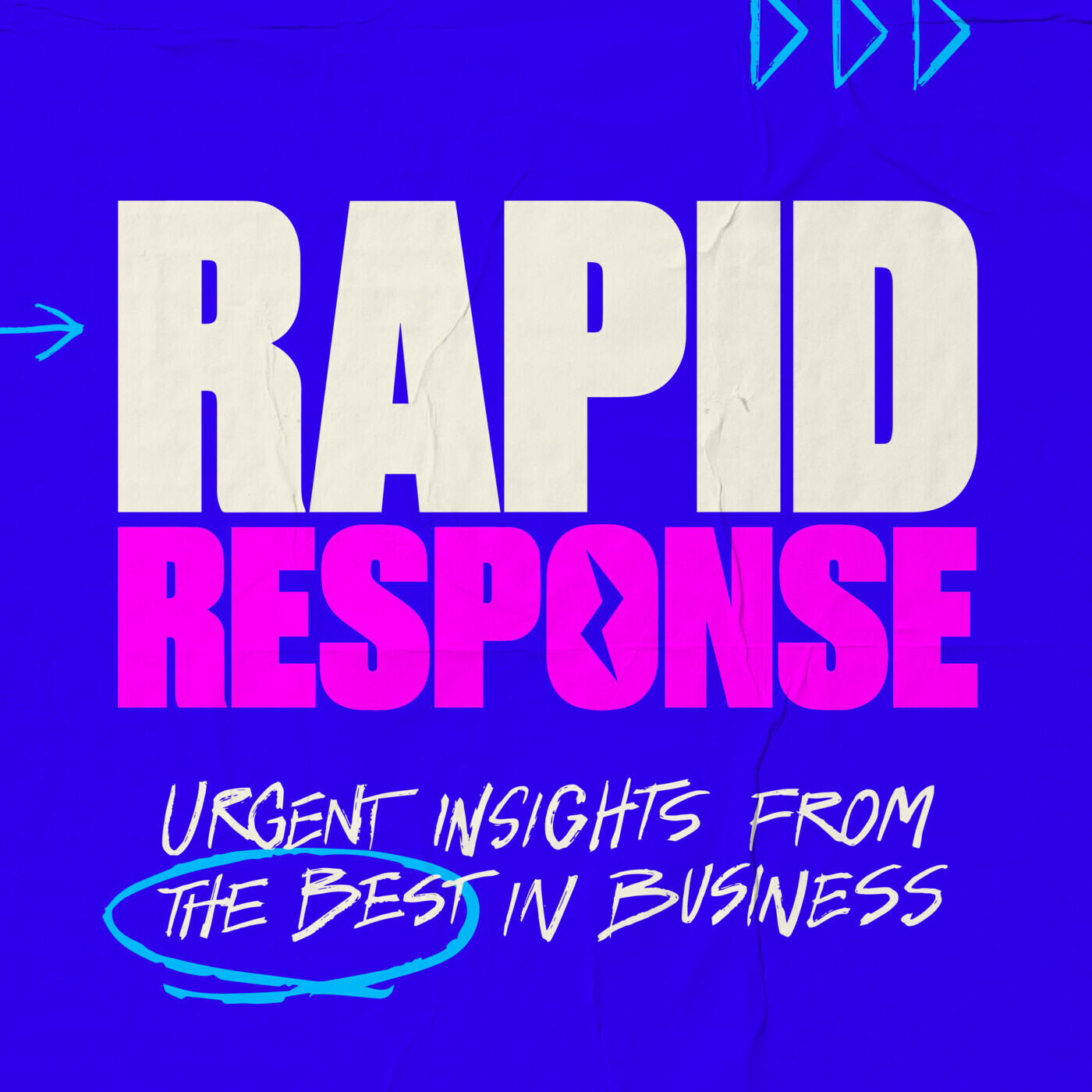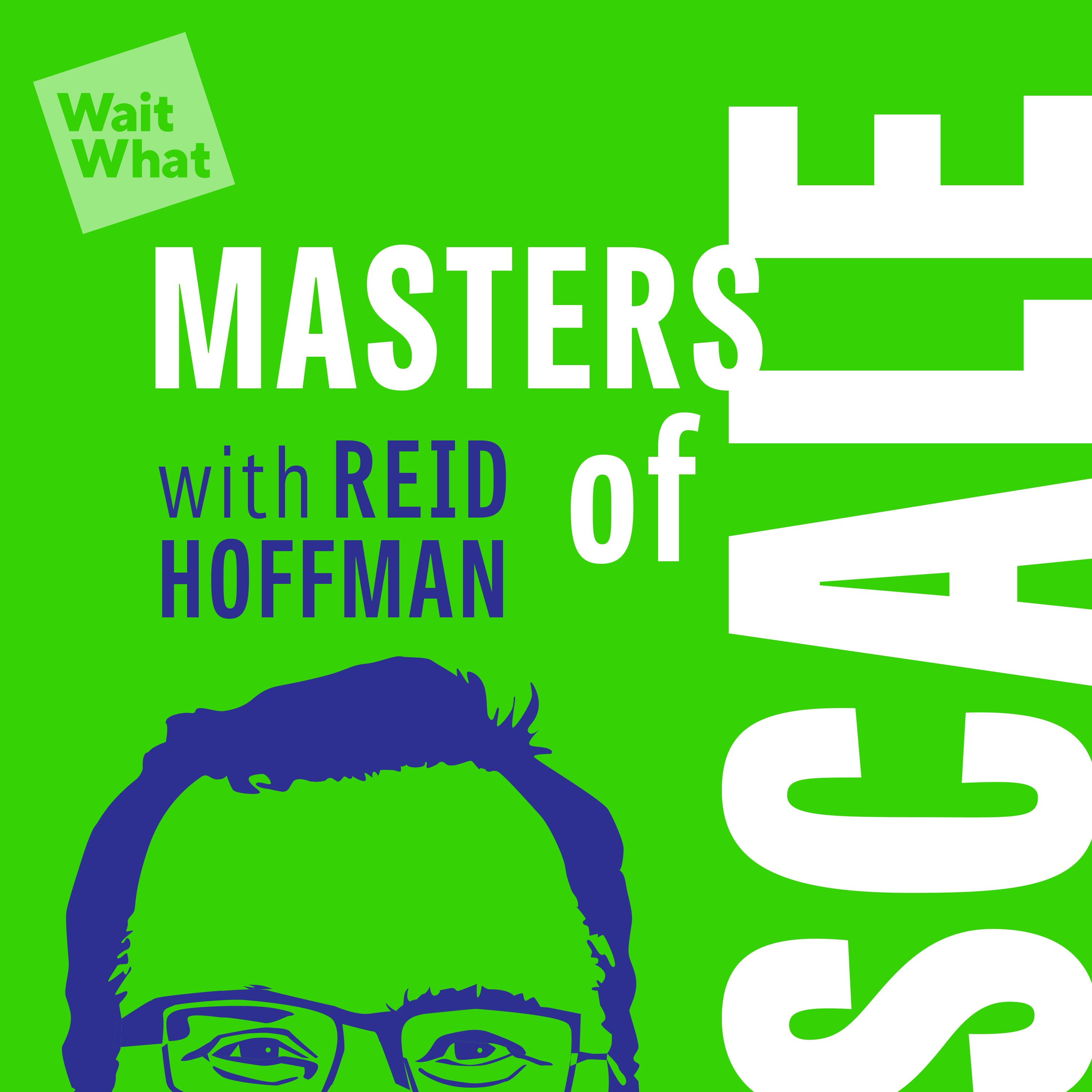
April 2, 2024 • 30min
Be an evangelist for authenticity, with tech veteran Guy Kawasaki
Masters of Scale

Key Takeaways
- Evangelism is critical for scaling innovative products - Guy Kawasaki's role as "software evangelist" at Apple in the 1980s helped drive adoption of the revolutionary Macintosh computer line
- A great product demo is worth a thousand slides - Being able to quickly demonstrate the value and capabilities of a new product is crucial for gaining buy-in
- Companies need to foster intrapreneurship to retain innovative talent and avoid becoming obsolete like Kodak
- AI is a transformative technology that Guy believes is "bigger than the industrial revolution" and will dramatically change business and society
- AI is currently best used as an assistant or co-pilot rather than a full replacement for human skills and judgment
- Entrepreneurs must be able to articulate their "unfair advantage" and how they differentiate from competitors
- Having a growth mindset is essential for being "remarkable" in any field
Introduction
Guy Kawasaki is a veteran of the early days of Apple, where he served as one of the original Macintosh evangelists in the 1980s. Since then, he has been a serial entrepreneur, venture capitalist, author, and speaker. He currently serves as the chief evangelist for Canva, a graphic design platform.
In this episode, Guy shares insights from his long career in tech, including lessons on scaling innovative products, fostering intrapreneurship, embracing AI, and developing a growth mindset. He draws on examples from his time at Apple, his current role at Canva, and interviews he has conducted for his "Remarkable People" podcast and book.
Topics Discussed
Early Career and Joining Apple (6:41)
Guy discusses his background growing up in Hawaii and how moving to California for college expanded his horizons in terms of career possibilities. After briefly attending law school and earning an MBA, he worked in jewelry sales before joining Apple in 1983.
On how his jewelry sales experience prepared him for tech evangelism:
"This jewelry business is hand to hand combat. You called on jewelry store owners, and you begged them for business...And all that really taught me how to sell, and that skill has stayed with me the rest of my life. Believe it or not, working in the jewelry business prepared me to be a tech evangelist."- Guy's role as "software evangelist" at Apple involved convincing software developers to create programs for the new Macintosh computers
- He combined sales, marketing, and leadership skills to drive adoption of Apple's revolutionary technology
Lessons on Scaling Innovative Products (10:57)
Guy reflects on his time at Apple and what companies can learn about retaining innovative talent:
- Need an "egomaniac leader" who can withstand pressure from the existing company infrastructure
- Physically separate innovation teams in a different building at least a mile from headquarters
- Dedicate full-time staff rather than matrix-managing existing employees
On the futility of long-term business planning:
"Who among us five years ago said there was gonna be a day when there's large language models that are sentient and smarter than most people, and they can write your essays, they can create your PowerPoints, they can generate images. Nobody said that."Evangelizing for Canva (17:21)
Guy discusses similarities between his early days evangelizing for Apple and his current role at Canva:
- Both companies aimed to democratize technology (computing for Apple, design for Canva)
- The power of product demos in quickly conveying value to potential customers and partners
Using AI in Writing and Research (22:38)
Guy shares how he used AI tools like ChatGPT to assist in researching and writing his new book "Remarkable People":
- Used AI as a research assistant to find examples and patterns
- AI suggested Julia Child as an example of a career-changer, which Guy hadn't known about
- AI is a powerful assistant but still requires human verification and judgment
AI as a Co-Pilot for Business (25:54)
Guy and the host discuss how AI is currently best used to augment human skills rather than fully replace them:
- AI can help with tasks like writing, research, and investment due diligence
- Still requires human judgment to verify information and make final decisions
- Unclear how different AI tools/models will differentiate themselves to users
Embracing AI for Innovation (28:59)
Guy argues that established companies should view AI as an opportunity rather than a threat:
- Embrace AI before competitors or startups
- Use existing advantages like brand awareness and scalability
- Acquire innovative AI startups if unable to out-innovate them internally
Key Questions for Entrepreneurs (30:30)
Guy emphasizes two critical questions entrepreneurs must be able to answer:
- How does my product improve on what came before?
- What is my unfair advantage? How do I differentiate from competitors?
Being able to articulate clear answers to these questions is crucial for gaining buy-in from team members, investors, and customers.
Conclusion
Guy Kawasaki's career spans from the early days of personal computing to today's AI revolution. Throughout, he has maintained an evangelist's enthusiasm for innovative technologies that can improve people's lives and work. His insights on product evangelism, fostering innovation within large companies, and embracing transformative technologies like AI offer valuable lessons for entrepreneurs and business leaders.
Key themes that emerge from the conversation include:
- The importance of being able to quickly and compellingly demonstrate a product's value
- Creating the right conditions for innovation within established companies
- Using AI as a powerful assistant while maintaining human oversight and judgment
- Maintaining a growth mindset and willingness to adapt to new technologies and opportunities
As AI and other emerging technologies continue to reshape business and society, Guy's career-long focus on identifying and promoting truly revolutionary products offers a model for how to navigate and capitalize on periods of intense technological change.

